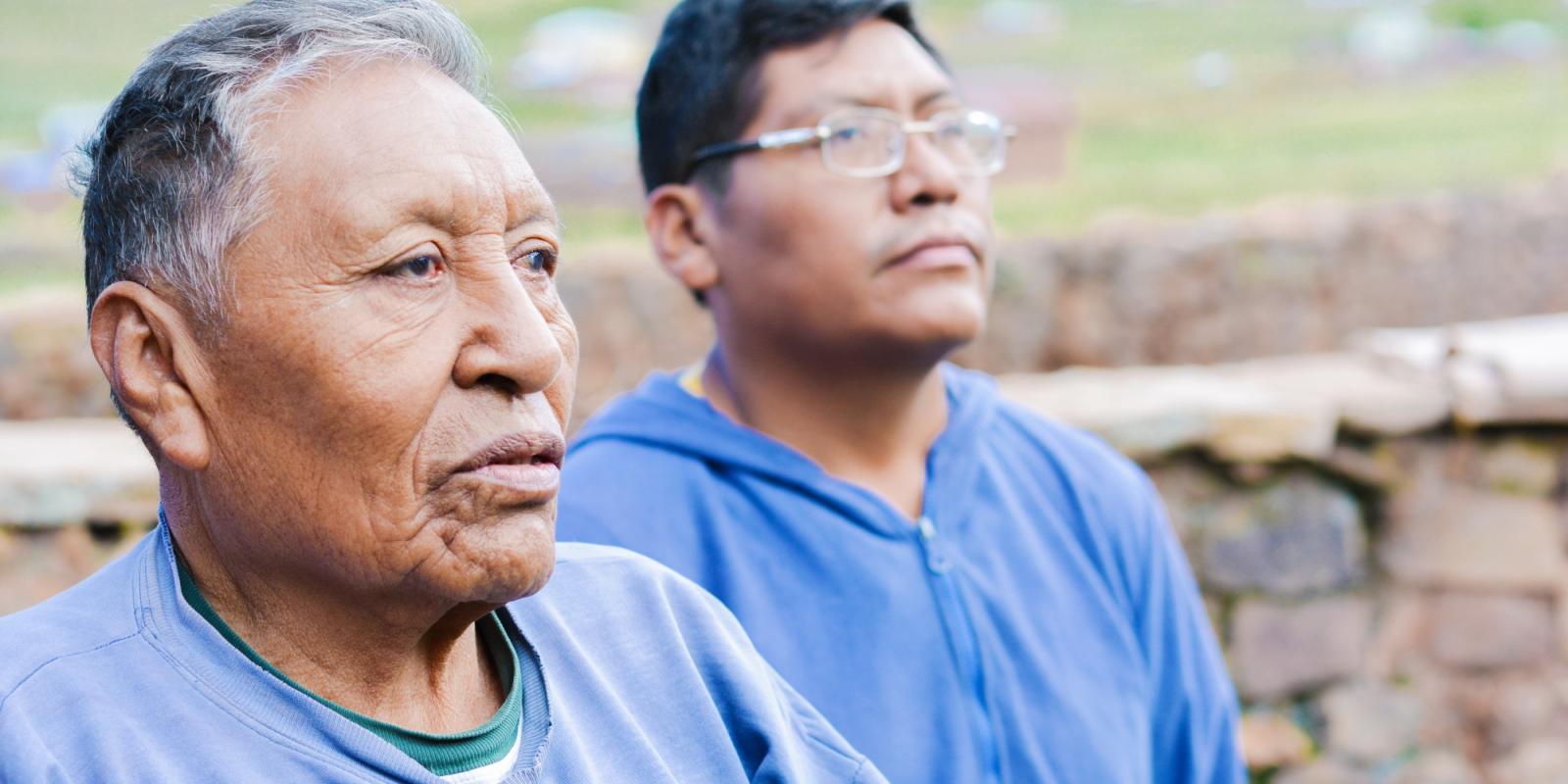This post is part of a series of three running across the next few weeks concerning the issue of obesity and Indigenous populations. A series of conversations with Indigenous people culminated in three fact sheets (Fact Sheet 1; Fact Sheet 2; Fact Sheet 3), which will be used at a Hill Day in Washington, DC, in May to advocate for better care for obesity for everyone, but specifically for Indigenous elders.
Obesity is a significant health challenge among American Indian, Alaska Native and Native Hawaiian elders that can increase an individual’s risk of developing multiple chronic conditions, such as diabetes and heart disease. It also can contribute to a missed diagnosis of several health issues, including sarcopenia and malnutrition.
According to a recent Title VI Needs Assessment, out of the 23,000 elders ages 55 or older, interviewed from 258 communities, 44.2% reported experiencing obesity. This figure is even higher for people who had another chronic condition (55.9%) or grandparents raising grandchildren (49.3%). Obesity is so widespread that many Indigenous elders view this disease as inevitable.
Urban elders face a slightly worse situation. When the Native Urban Elders Needs Assessment surveyed 1,023 elders ages 55 or older, it found that 51.9% were obese. For comparison, the obesity prevalence for U.S. adults ages 60 and older is 41.5%—nutrition, diet, socioeconomic, genetic and psychosocial factors, as well as physical activity levels, contribute to this disparity. Ultimately, such high obesity rates are a result of the loss of land and traditional foods, historical trauma from abuse by the U.S. government and its citizens, as well as disinvestment in tribal communities.
While the American Medical Association designated obesity as a disease in 2013 and reaffirmed this in 2023, Medicare still does not classify obesity as a chronic condition. This leaves elders, their families and their communities to tackle this important issue.
One solution is the Food is Medicine movement, which has gained significant momentum in Indian Country. Tribal members now are embracing traditional and indigenous foods. These foods are rich in essential nutrients and have been a part of the indigenous diet for centuries. By incorporating these options into their diets, elders are reconnecting with their cultural heritage and improving their physical, emotional, spiritual and mental health.
Inter Tribal Council of Arizona, Inc.-Area Agency on Aging, Region 8 (ITCA-AAA)
One agency dedicated to supporting the elders in reaching and maintaining a healthy weight is the ITCA-AAA, which supports 21 Tribes in Arizona with the Older Americans Act (OAA). Several programs and initiatives are underway to promote healthy lifestyles among the elders they serve. ITCA-AAA recently distributed the “New Native Kitchen” cookbook to the Tribes that receive Older Americans Act Title III and Title VI funding through them. The cookbook contains traditional recipes that senior centers have begun incorporating into their meals, and the older adults seem to enjoy them. Some of the most popular recipes are Tepary Bean Soup, Pork Chops with Caramelized Onion & Prickly Pear Sauce, and Cholla Buds with Pinion Nuts & Lime Vinaigrette Salad. The Hopi Tribe makes a version of Pinot Bean & Onion Soup called Badupsaki.
Despite obesity being designated as a disease in 2013 and reaffirmed in 2023, Medicare still does not classify obesity as a chronic condition.
ITCA-AAA also facilitates several evidence-based programs designed to improve the elders’ health. Two such programs are EnhanceFitness and Matter of Balance. EnhanceFitness is a low-cost, evidence-based group exercise program that helps older adults at all fitness levels become more active, energized and empowered. ITCA conducts this program in four tribal communities, while several others host their own programs. Matter of Balance is a fall-prevention program that helps elders view falls as controllable and assists them as they make changes at home to reduce their risk of falls. The exercise component of this program increases strength and balance.
When asked about the Matter of Balance program, one elder responded, “It was fun what we learned. It helps you not to stay home and feel depressed, come out of [the] house, lets you mingle, be together, and speak together…”
ITCA-AAA has a variety of other programs that assist with weight management, including the Chronic Disease Self-Management Program. This program aims to help elders with chronic conditions manage their symptoms effectively. The Diabetes Self-Management Program educates participants on how to manage their diabetes symptoms and enhance their overall quality of life. Additionally, ITCA-AAA provides training on good nutrition and physical activity for elders.
Obesity is a complex issue that requires a diverse range of support and resources to find a solution. To make a meaningful difference, connect with the Native elders or Tribe in your local area. Through an open and respectful conversation, we can explore opportunities for collaboration and work together to find effective solutions. If you want to learn about engaging with tribal communities in a culturally appropriate and respectful way, the Changing the Narrative About Native Americans: A Guide for Allies can be of help.
Heidi Robertson, MPH, is a nutrition consultant for Older Americans Act Title III and VI Programs. Nanette Taho is a Dietetic Technician, Registered (DTR), and a program manager for the Inter Tribal Council of Arizona Area Agency on Aging-Region 8. She is a member of the St. Regis Mohawk Tribe.
Photo credit: Ruslana Iurchenko













